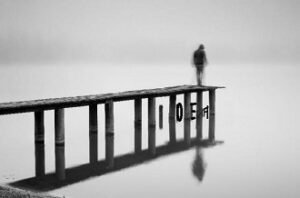
The reduction of transcendence to subjectivity
The idea of an absolutizing and unique thought has pursued humanity since classical antiquity, the One will appear in almost all texts, but an almost hidden concept coming from Socrates (clearly through “All philosophy is just a footnote to Plato and Aristotle” phrase by Alfred Whitehead, in fact one could extend it to Socrates, in fact Dalrymple himself does not include Aristotle (see p. 67).
antiquity, the One will appear in almost all texts, but an almost hidden concept coming from Socrates (clearly through “All philosophy is just a footnote to Plato and Aristotle” phrase by Alfred Whitehead, in fact one could extend it to Socrates, in fact Dalrymple himself does not include Aristotle (see p. 67).
However, in addition to the problem of translation, few know Greek, and every translation is a betrayal, because we know that language is the expression of Being, and even for science we know that there is no formal truth and we have already posted using Darlymple’s texts , that there are two forms of relativism: the abstract and the empirical, so just to enter a new text, we depend on thought, although abstract dichotomies are also found in it, such as that of formal logic that is valid for mathematics and empirical logic that is valid for science of nature in general and with certain restrictions for social ones as well.
This way we can enter the text of Slavoj Zizek on “The year we think dangerously”, he is talking about 2011 both in the various occupation movements (in Europe in Wall Street) and in the Arab spring, which afterwards the absolutizing thoughts tried to reduce to misunderstandings and ironies, but there was something new and uncomfortable in those movements, and this introduces what Zizek thinks.
And without a doubt a reading more to the left than Dalrymple, but what is interesting is both the search for new paths, the fact that we return to Byzantine socialism and pre-colonial neoliberalism indicates that we are going in circles, and some thinkers look for the new in the midst to populism and polarization.
Zizek’s first important clarification to avoid footnote readings is a quote he makes from Hegel: “if reality does not correspond to the concept, worse for reality” (Zizek, 2012, p. 10), to say that all left-wing thought with Hegelian affiliation, and this includes the orthodox Marxists, are more attached to the theory of thinking, and although they wish to be heirs only to Aristotle who would be more “realistic”, there is also in Plato the idea of the sensible world separated from the world of ideas, but Careful, the eidos of antiquity has little or nothing to do with Kantian idealism, in a word eidos in Greek is image.
The divergence between Plato and Aristotle is in the representation of the real: in Plato the extromission (the image projected into us and which converges to the intelligible world) while in Aristotle coffee the intrusion, where the idea comes from the “world of contingent phenomena” and that emit copies of themselves into our interior, and are interpreted by an innate or acquired knowledge.
Differing from this original conception of Kantian principles, he points out his divergence with Frederic Jameson, and states that in Marx’s thought both the objective and subjective dimensions, not admitting the objective dimensions as ideological, “a description devoid of any subjective involvement” ( pg. 10), but both are not subject to any form of transcendence, what Zizek discusses with Kant and about what he considers “the public space of ‘world civil society’ designates the paradox of universal singularity, of a singular subject who, in a kind of short-[circuit, he bypasses the mediation of the particular and participates directly in the Universal” (pg 11), just as Kant and Hegel do not break away from the objectivity/subjectivity dichotomy to reach a truly universal transcendence.
The absence of an ascesis that reduces man to the merely human, or to use an “too human” philosophical expression, a book by Nietzsche that abandons transcendence, to try later to find it again in the eastern philosophy of Zarathustra, a path taken by many previous contemporary philosophers to the new types of transcendence that we have already mentioned from Theodore Dalrymple.
The analysis of 2011 and its revolts are important for the analysis that he makes of Hard and Negri “Crowd” and the analysis that he makes of the utopias of 2011 are important, if not the only ones, of dreams postponed, since the Prague spring, the revolts of Paris, the movements of the hippies and opposition to the Vietnam War in 1968, if the political consequences were not what was expected, they moved the cultural world for years, and we believe they can also move the scarce political ideas and universal theories about peace between peoples, with the springs of 2011, there is a lack of models of real emancipation, and realism has to do with ideas (eidos) and they are not just “practical” options because they themselves have their theoretical ideals, although rarely examined, Zizek does.
The return to the Greek Eidos, which are what we produce as images, whether from the inside to the outside (extromission) or from the outside to the inside (intromission), is important to review the ideas of our time, where did it get lost or perhaps find the treasure wanted.
ZIZEK, Slavoj (2012). O ano que sonhamos perigosamente (The Year We Dreamed Dangerously), trans. Rogerio Bettoni. Brazil, São Paulo: Boitempo.









